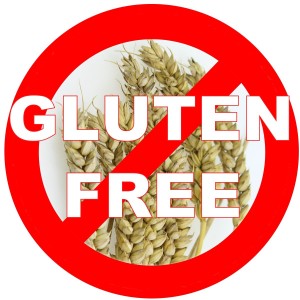Gluten is a protein found in barley, rye, wheat and any other food product that may contain these grains. Celiac disease is an autoimmune disease that affects about 1% of Americans. Ingesting gluten damages the villi, small structures lining the small intestine, and restricts with the body’s ability to absorb nutrients. Here are some common myths about this disease:
Gluten-free Means Healthy
By now, you are well aware of the increasing trend of gluten-free foods. There is a growing perception that gluten-free foods are healthier. However, this is not always the case. For those with celiac disease, gluten-free foods are critical, but for others, they can lack fiber, minerals and vitamins.
Gluten Sensitivity is the Same as Celiac Disease
Celiac disease, genetic in its origin, is an autoimmune disease. Symptoms caused by the consumption of gluten are not dictated by the amount consumed. Gluten sensitive people are likely able to tolerate small amounts of gluten. They may even be able to outgrow this particular sensitivity.
Celiac Disease Only Affects the Gastrointestinal Tract
This is a common misconception regarding the reaction elicited in response to gluten consumption. While it is true that symptoms appearing in the GI tract are common and noticeable, the immune cells can leave the GI tract. This can cause inflammation anywhere else in the body. This can lead to other symptoms such as headaches, fatigue, joint pain and more.
Maintaining a Gluten-free Diet Will Cure Celiac Disease
There is no readily available cure for celiac disease. People with celiac disease are advised to permanently eliminate gluten from their diet to avoid long-term complications. It is important to be cautious and read the labels of food, gluten can be found in surprising places, like chocolate.
Celiac Disease is Not a Serious Issue
Children with celiac disease were found to be more than twice as likely to develop Type 1 diabetes and more than four-times as likely to develop autoimmune thyroid disease, in comparison to their celiac-free counterparts. Additionally, celiac disease increases a person’s risk of non-Hodgkins lymphoma. This is why it is essential to get an early and proper diagnosis!




